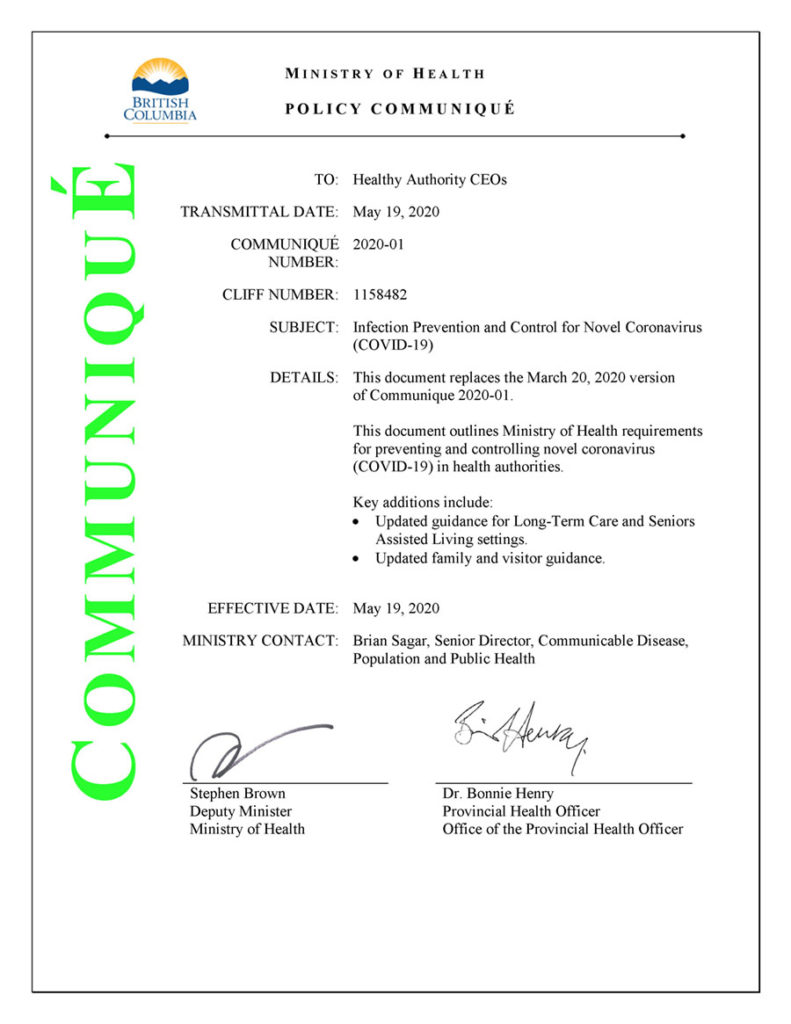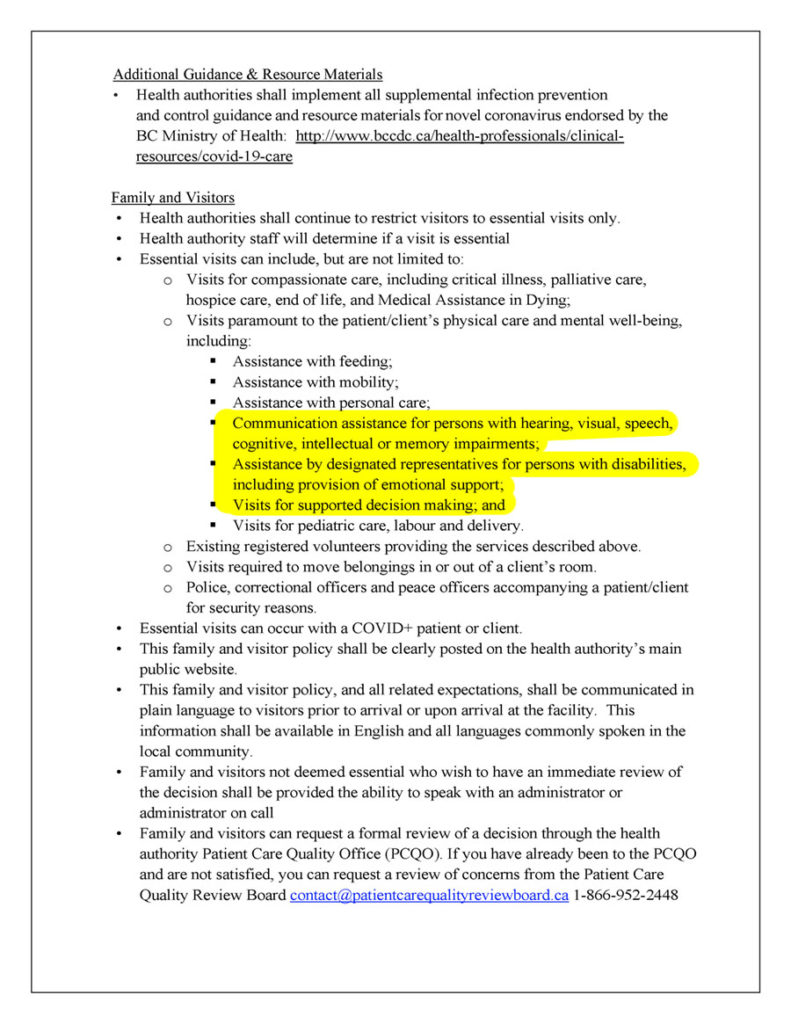#NotJustAVisitor: Policy & Tips
Safe & Supported in the Hospital: BC’s #NotJustAVisitor Policy and 5 Things You Can Do
Yesterday afternoon, Adrian Dix, the British Columbia Minister of Health, announced a significant revision to “essential visitor” policy during the pandemic. The revised policy recognizes the special role of families and support staff for patients with disabilities. Specifically, the Minister described three different types of support visits that should be considered essential for patients with disabilities:
- Assistance by a Designated Representative
Assistance by designated representatives for persons with disabilities,
including provision of emotional support; - Supported Decision-making
Visits for supported decision making; - Communication Assistance
Communication assistance for persons with hearing, visual, speech, cognitive, intellectual or memory impairments;
We are very thankful that BC is leading the way with this revised “Essential Visits” policy which includes the “Updated family and visitor guidance” to facilitate better support for people with disabilities,
You can see the actual policy here, which was officially released on March 19, 2020.
5 tips to prepare for your visit to the hospital
By taking some simple steps, you can avoid problems when you visit a hospital, even if hospital staff haven’t yet heard about the revised policy for patients with intellectual disabilities:
- Get a doctor’s letter describing the support you need
Ask your doctor for a letter explaining what disabilities you have and why you need a support person to help you in the hospital. Keep that letter where you can easily find it when you need to go to a hospital. - Describe your needs in a video or support letter
Ask your support person can help write a letter or make a video explaining your support needs to hospital staff. Or use a form like this one to explain your support needs: COVID-19 Hospital Transfer Form - Call hospital before you go and tell them you are coming
Contact the hospital before you go to explain why you need to bring a support person and to find out what rules you both have to follow to keep everyone safe. Ask your support person to help with this conversation if you need it. - Get a BC Representation Agreement
The policy specifically mentions “designated representative” for people who need support. If you have a Representation Agreement, bring it to the hospital with you. (If you want to learn more about Representation Agreements, go to SALN’s: Nidus: Representation Agreement Presentation for Self-Advocates, which is being presented by Nidus Personal Planning Resource Centre. - Bring all your documents to the hospital
Bring your Representation Agreement, doctor’s letter, your own letter or video, and a copy of the new policy to the hospital. Keep it with you, to help explain your support needs when you meet different staff. If the hospital still refuses to allow your support person, show them the policy and give them a link: Infection Prevention and Control for Novel Coronavirus (COVID-19)
These helpful suggestions are based on a guide shared by Ontario’s ARCH Disability Law.
More Info on COVID and Disability Rights in Canada
Public Health Canada has a new national guide on protecting the rights and safety of people with disabilities in #COVID19. This helpful toolkit was developed with input from Minister Carla Qualtrough’s new federal COVID Disability Advisory Committee.
Representation Agreements
#SALN #Represent!: Do you have a Representation Agreement? Want to learn more about Representation Agreements and how they can help you? The Self-Advocate Leadership Team (SALN) believes a Representation Agreement is an important part of a Covid-19 emergency kit. It is also helpful in other situations. This presentation will be in plain language. When you register you will get an email with a Zoom link.
- Nidus: Representation Agreement Zoom Presentation for Self-Advocates
Tuesday, May 26, 2020, 1:30 PM – 3:30 PM
To learn more about BC Representation Agreements, visit Nidus Personal Planning Resource Centre.






